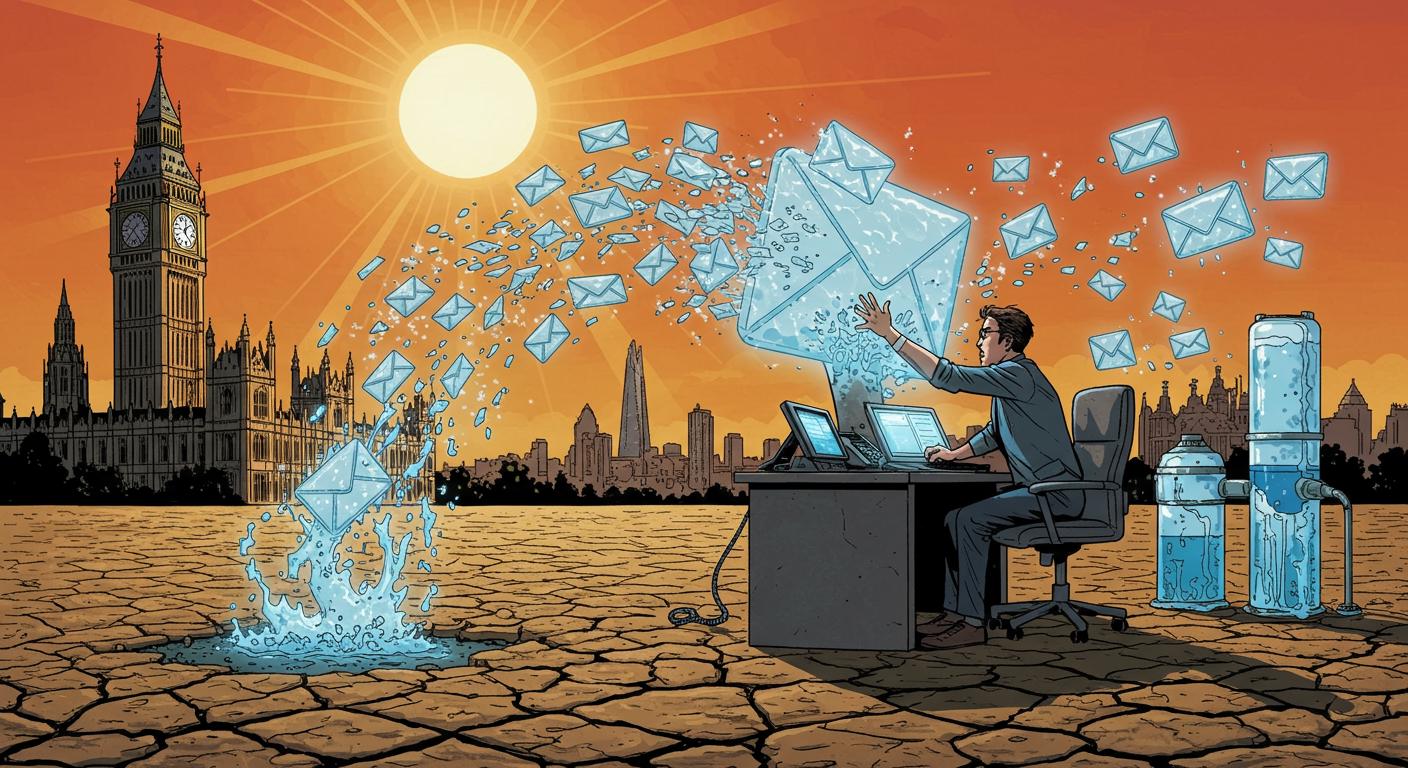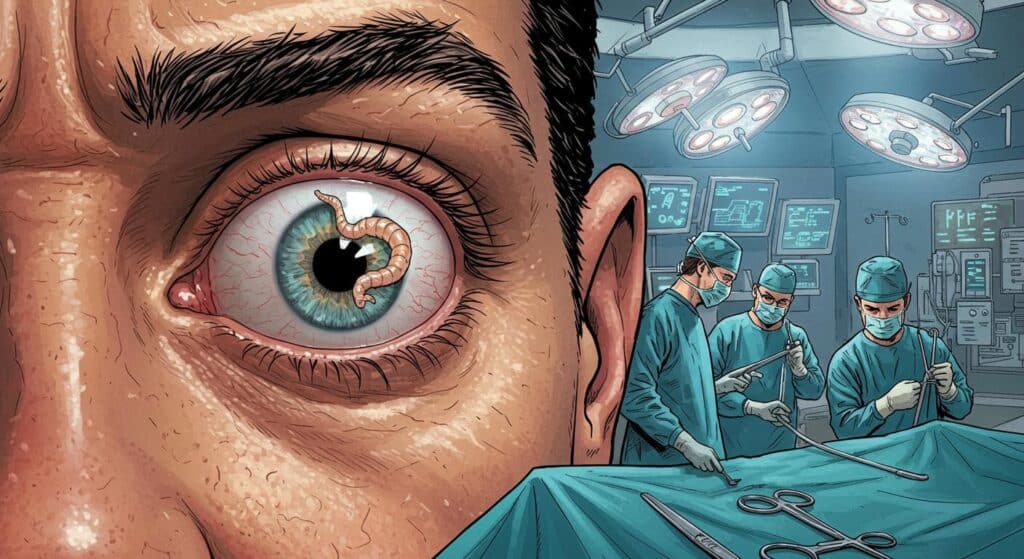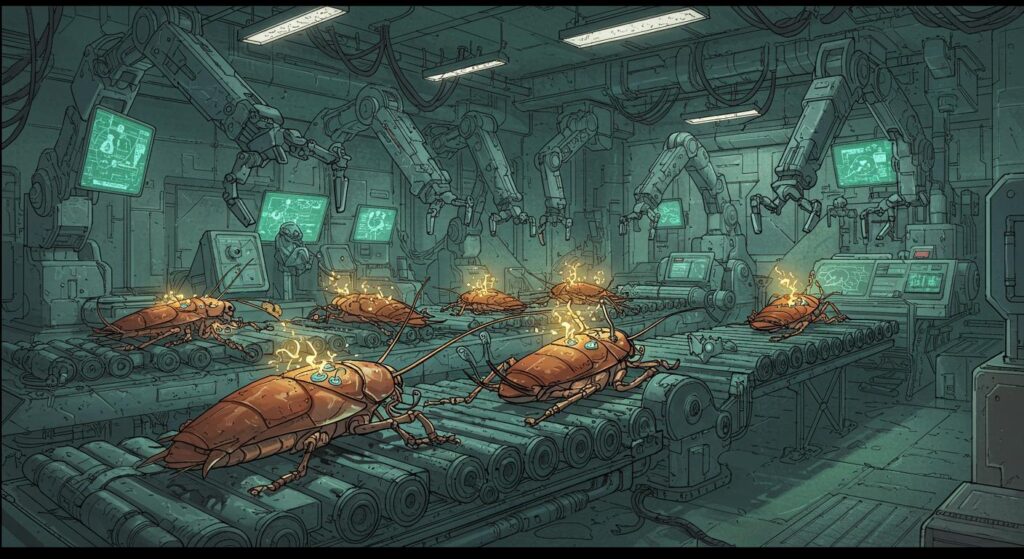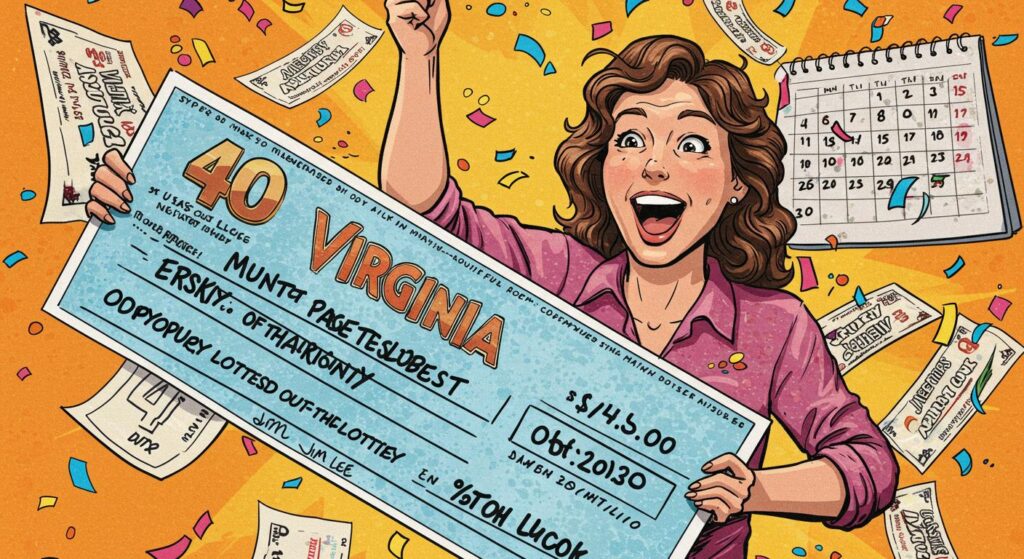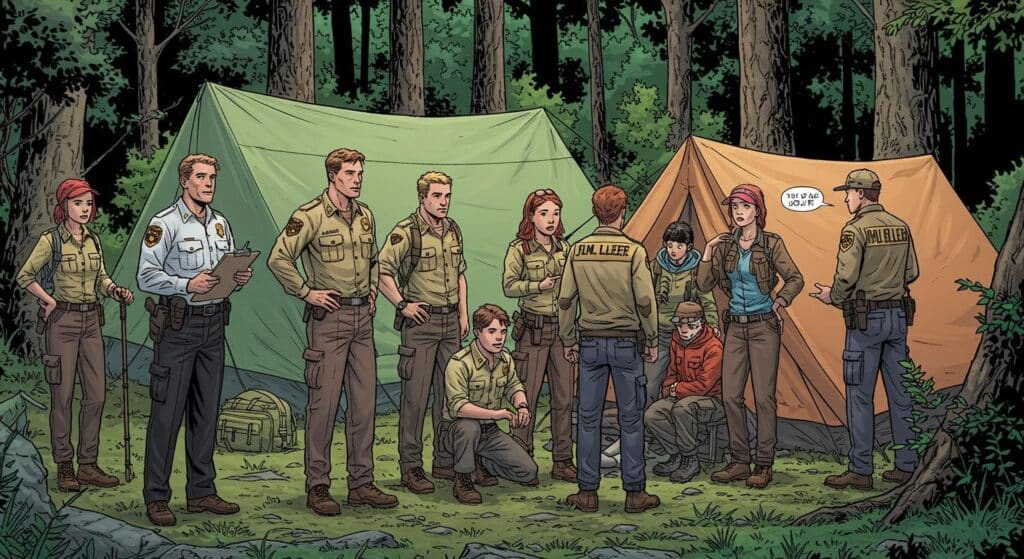Britain, a land famed for understatement in the face of adversity, is facing one of its worst droughts since the 1970s. Lawn sprinklers are silent, rivers are dwindling, and amid the usual pleas for shorter showers and rain barrels, citizens have received an unexpectedly modern request: the government would like everyone to delete old emails.
Digital Decluttering for Dryer Days
The story first came to prominence with a government press release, as reported by 404 Media, following a serious National Drought Group meeting. The logic runs deeper than you might guess: all those forgotten messages, archived photos, and languishing attachments must be stored somewhere, and that “somewhere” is a network of data centers, humming and sweating away quietly in the background.
As described in coverage assembled by NewsBreak from The Independent, these centers don’t just run on electricity—they consume vast amounts of water to keep cool. The Environment Agency, which handles water conservation in the UK, recently highlighted research by Oxford University suggesting that a relatively unassuming 1-megawatt data center can require upwards of 26 million liters of cooling water annually. This figure, relayed through the agency’s current drought advisories, skips the realm of the abstract and enters the deeply practical: every gigabyte saved could mean slightly less water evaporated somewhere in the British countryside.
In a detail presented by NewsBreak, Environment Agency director and National Drought Group chair Helen Wakeham drew a direct line between daily digital habits and water conservation efforts, stating, “The current situation is nationally significant, and we are calling on everyone to play their part and help reduce the pressure on our water environment. Simple, everyday choices—such as turning off a tap or deleting old emails—also really helps the collective effort to reduce demand and help preserve the health of our rivers and wildlife.”
A Landscape of Parched Lawns and Overflowing Inboxes
England is no stranger to hosepipe bans, but in 2025 the drought status has spread from isolated patches to a fifth of the country. NewsBreak notes that Yorkshire, Cumbria and Lancashire, Greater Manchester Merseyside and Cheshire, East Midlands, and the West Midlands have all been declared official drought areas, while regions like Thames and East Anglia hover on the verge. Any illusions that this was just a southern inconvenience have evaporated along with the river Wye, which, as previously reported in 404 Media, has reached its lowest level on record.
Official restrictions are significant. Garden hoses are now forbidden territory for Yorkshire homeowners, while water companies covering the Thames and much of the South East have implemented postcode-targeted bans.
Against this backdrop, the government’s guidance, outlined in both NewsBreak and 404 Media, leans heavily on time-honored advice—shorter showers, the collection of rainwater, and skipping unnecessary garden watering. But it’s the digital conservation tip that stands out as a distinctly 21st-century twist. Emails and cloud files have, apparently, joined baths and sprinklers as unexpected battlegrounds in the drought struggle.
Is a Mass Email Purge Meaningful, or Merely Symbolic?
It’s a peculiar sight: the notion that trimming your inbox could—in some incremental, aggregated way—contribute to river health. The Environment Agency, as documented by NewsBreak, explicitly framed deleting unused files as part of a menu of “simple, everyday choices” the public can make alongside turning off the tap.
But as with many measures pitched during times of collective strain, the real-world impact is both difficult to quantify and easy to dismiss as marginal. Does deleting your uncle’s joke emails and decades-old receipts truly put a dent in the water bills of hulking data facilities? Atmospheric physicists or IT specialists might wince at the scale, but the symbolic power remains: everyone can do something, even if that “something” is virtual.
Earlier in the NewsBreak article, it’s mentioned that the dry spell itself is not expected to end soon. According to the Met Office’s chief meteorologist Dr. Will Lang, the odds favor continued hot, dry weather across southern England—punctuated only by hopes for thunderstorms. With more ordinary conservation measures already in place, perhaps digital housekeeping is just the logical next frontier for a nation famous for tidiness and understatement.
Delete, Save, Reflect
There’s a certain British charm—and perhaps a hint of absurdity—in imagining families across Manchester or Wessex sitting in the heat, glass of lukewarm water in one hand, the other poised above the “delete” key. In an era where the line between the physical and digital blurs daily, it’s oddly appropriate that drought resilience would extend from the bathtub to the inbox.
Is urging digital decluttering a creative pivot, or simply the latest manifestation of that national instinct to rally around small gestures in difficult times? As anyone who’s spent hours sorting through dusty archives—or, say, old email chains—can attest, the act of purge itself can feel oddly satisfying, and sometimes even meaningful. Even if it doesn’t refill the Wye or the Ouse, the request suggests that in an interconnected world, the consequences of our virtual habits aren’t so easily dismissed.
And anyway, if you haven’t checked your unread count lately…well, you never know what you might be saving.

